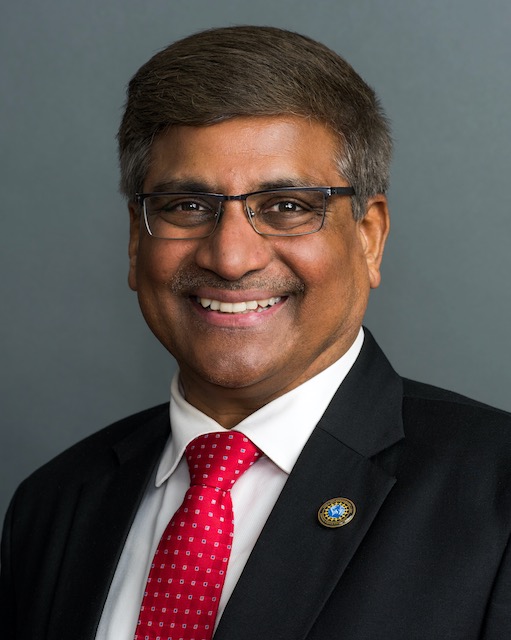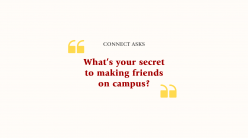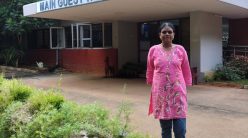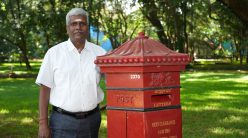
An IISc alumnus, Sethuraman “Panch” Panchanathan, was appointed as the 15th Director of the National Science Foundation (NSF), USA. Before being chosen to head NSF, he was at Arizona State University (ASU), where he founded the Center for Cognitive Ubiquitous Computing (CUbiC) which is focused on designing technologies and devices for assisting individuals with disabilities. He has also served as the Chief Research and Innovation Officer at the university. For his many achievements, Panchanathan has received the IISc Distinguished Alumnus Award 2020. Following the announcement of the award, he did an email interview with Connect about the recognition from his alma mater and his vision for NSF.
You received your engineering degree from the Department of Electrical Communication Engineering at IISc in the early 1980s. What is your favorite memory from your time at the Institute?
There are so many favourite memories from my time at the Institute, including spending time with amazing friends (fellow students), engaging with inspiring faculty, playing cricket for IISc, and enjoying the awesome food in the A mess.
After having gone through the rigour of the North American education system – first in Canada and then in the US – what do you think was good about the education you received in India (in IISc and then in IIT Madras)? And what do you think was lacking?
India provided me a strong foundation with high-quality education enabled by selfless and dedicated faculty members. I credit my fellow students and the outstanding faculty at both IISc and IIT Madras for creating an environment of excellence and motivating me to do my best.
What has been NSF’s role in fighting the COVID-19 pandemic?
The role of NSF and other science agencies is to unleash talent and ideas by providing support to the scientific community to find solutions to the challenges presented by the pandemic. NSF reacted right away to the pandemic through its Rapid Response Research grants by funding non-medical research to understand the spread of COVID-19, educate about the science of virus transmission and encourage the development of actions to address this global challenge. To date, we have funded more than 1,000 coronavirus research projects totaling more than $197 million.
The research community continues to display resilience under tremendous pressure. It makes me proud to be a scientist and an engineer at this time. We are facing new and unique challenges as we deal with COVID-19, and NSF is prioritising the health and safety of our community. NSF recognises the multiple concerns related to the effects this will have on NSF-funded research and facilities and is committed to providing the greatest flexibility to support researchers’ health and safety. NSF is consistently updating guidance and resources to keep the scientific community informed. This information is available on our website at: nsf.gov/coronavirus.
When you were confirmed as the Director of NSF, you said in a statement, “My personal mission is to inspire, empower and serve humanity through life-changing innovations that have the potential to alter the face of how we view ‘different abilities’ on a global scale.” How does that align with NSF’s traditional emphasis on fundamental research?
At a young age, I was privileged to have the opportunity to teach math and English to disadvantaged middle and high school students in underserved areas in Chennai. I had a special affinity for those with different abilities in my community, and I wanted to find ways to empower those that were disadvantaged in society. I believe that every human being has raw, untapped potential that can be realised with the right support and opportunity.
My personal research in designing technologies and devices for empowering individuals with a range of abilities opened my eyes to the importance of inspiring, motivating, and nurturing talent across the socio-economic spectrum. All of these experiences have helped prepare me for my current role as NSF director and have deeply shaped my vision for the agency’s future, which hinges on things like ensuring inclusivity and accessibility in STEM as well as expanding the agency’s partnerships. We need to inspire new generations across all communities to explore the wonders waiting to be discovered.
As an engineer and an innovator – you previously served as the Chief Research and Innovation Officer at ASU – what do you bring to the table as the head of NSF?
Working in academia has inspired me to pursue exploratory and translational research, mentor outstanding talent, and engage with industry and other collaborators across the globe through a range of partnerships. My leadership roles at Arizona State University enabled me to envision programmes that encouraged the scientific and innovative spirit to permeate, prosper and advance among faculty, researchers, and students. These experiences provided me with an opportunity to enhance my understanding of the importance of higher education for national prosperity and competitiveness.
As a former member of the National Science Board, I had the opportunity to contribute to policies that advance science and engineering. I personally believe in seeding bold, large-scale foundational research with meaningful societal impact. As NSF director, I want to work to ensure that the agency is strengthening its mission working at speed and scale.
Science published a profile about you, describing you as an optimist. Do you think that will remain unchanged as you navigate your way through the beltway politics of Washington DC?
I am an eternal optimist. We cannot have innovation in science without optimism, hope and confidence about the future. Yes, we are facing a global pandemic, but this is the greatest time in the history of the human race for innovation and discovery. I am a strong believer that challenges can be turned into opportunities. My unanimous confirmation by the [US] Senate is good proof that people feel very bullish that science and technology has got a great future in our country and, more importantly, that we can be a global leader.
This year, the White House Office of Science and Technology Policy announced a nationwide focus on driving new developments in “Industries of the Future” (artificial intelligence, advanced manufacturing, quantum information science, advanced wireless, and synthetic biology). NSF can be a huge player in terms of moving these initiatives into the future. I believe we have all the support essential to moving this agenda forward.
In the coming years, what are the new frontiers of research that NSF will focus on?
NSF plays a critical role in US science and engineering because it supports basic research in all fields. We enable researchers to explore fundamental scientific questions about everything from the forces that govern the universe around us to the biological, chemical and social systems that make us who we are. I believe in seeding bold, large-scale foundational research with meaningful societal impact. Science is extremely important if you want to address societal problems in a constructive and an outcome-oriented way.
I have identified three pillars for my vision: advancing research into the future, ensuring inclusivity, and expanding global leadership in science and engineering. I am looking to focus on strengthening at scale and speed. I would like to see NSF’s investments amplified through partnerships with industry, non-profits, agencies, and other entities. Finding partners who share our values, aspirations and approach and then leveraging each other can benefit the country both economically and societally.
The New Education Policy (NEP 2020) announced by the Government of India envisages a National Research Foundation (NRF) to fund research in science and technology in the country. With the benefit of hindsight, what are the lessons that it can learn from NSF?
From the very beginning, NSF’s integrity has been its most important feature. This agency was created to support basic research to expand what we know and benefit our country’s population. We work with research communities to determine the highest priority areas to advance, and also created a review process that serves as the global gold standard – and we have never stopped working to improve ourselves. We have earned the trust of the research community and the public. What we have done over the decades has been profound, ranging from building telescopes to explore the universe to helping establish the foundations of the Internet to connect everyone here on planet Earth, all enabling breakthroughs in every field. But we could not have done that without a strong backbone of openness, transparency and integrity from the outset that guides our activities everyday.
IISc has announced that you have received the Distinguished Alumnus Award for 2020. Congratulations. What does it mean to you?
I am extremely honoured to receive this recognition. It is always a delight to be recognised by your alma mater. The fact that this celebrates the work on empowering individuals with disabilities makes it even more special. I am indeed grateful for this award.




